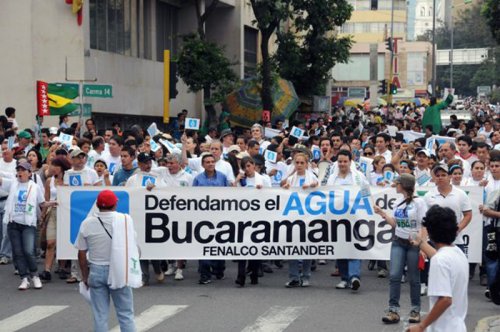
Tech Dirt | 31 March 2016
New analysis shows ’frivolous’ corporate sovereignty suits increasingly used to deter regulation rather than win compensation
by Glyn Moody
The rise in public awareness of the dangers of corporate sovereignty provisions in agreements like TPP and TAFTA/TTIP has brought with it a collateral benefit: academics are starting to explore its effects in greater depth. An example is a new paper from Krzysztof J. Pelc, who is an Associate Professor in the Department of Political Science, at McGill University in Canada. Called "Does the Investment Regime Induce Frivolous Litigation?" (pdf), it looks at how the investor-state dispute settlement (ISDS) mechanism has evolved in recent years, and in a very troubling direction.
Along the way, the paper explores one of the central arguments made by those supporting the inclusion of corporate sovereignty chapters in major agreements: investors lose most of the claims that they bring against governments, so ISDS is really nothing to worry about. But Pelc identifies a key question posed by this line of thinking:
Why would investors continue to file these highly costly cases, if the expected success rate is so low?
In fact, things turn out to be even more mysterious:
Current estimates actually overstate investors’ success rates, especially when it comes to specific types of legal claims. What is more, this rate of success has been dropping precipitously over time — the exact opposite trend to the one we observe in inter-state disputes in the trade regime over the same period.
By analyzing 1421 individual claims in 676 investment disputes from 1993 to present day, Pelc discovered that most disputes are over what are claimed to be instances of indirect expropriation by governments. That’s in contrast to the traditional direct kind, for example when dictators send their armed thugs to throw foreign investors out of a factory they own — something that almost never happens these days. Indirect expropriation is claimed by companies to include things like enforcing higher standards for drug patents, or simply trying to protect key water supplies from pollution. Pelc explains why investors are doing this, even though the odds of winning are low:
The cost of investor-state litigation — far higher than the cost of, e.g., trade litigation — means that firms may benefit from spillover effects of the challenges they bring forth. When Philip Morris challenged Australia’s labeling regulations, New Zealand put its own labeling legislation on hold, and Philip Morris loudly praised the decision. If litigation exerts a sufficient deterrent effect, firms may benefit even when they lose a case. The result is an increased likelihood of frivolous litigation, where the purpose of a challenge is not so much to win the dispute or obtain compensation, as it is to deter further regulation.
Pelc says his analysis shows this kind of "frivolous" corporate sovereignty litigation is becoming more common:
Firms are litigating more and more, and they are winning less and less. To wit, investors win less than 10% of the indirect expropriation claims they bring against democratic countries. The design of the regime, which allows private standing [whereby private firms or individuals can themselves decide to bring a lawsuit against governments], has contributed to such frivolity: compared with analogous regimes like international trade, it features little of the restraint that exists in dispute settlement between sovereign states.
The fact that corporations can sue nations under ISDS without needing to ask permission, or to satisfy any pre-conditions, makes it particularly easy to bring "frivolous" claims against democratic governments purely in the hope that doing so will chill further regulations, rather than with any serious hope of winning substantial damages. Of course, the fact that such awards are also available represents an additional incentive to file lots of corporate sovereignty challenges, however weak. Pelc points out another feature of ISDS that encourages companies to bring even the most frivolous cases: the absence of reciprocity — the risk that they will be sued back. In fact:
The only cost they face from a legal challenge is the cost of counsel — which in the case of the investment regime, in particular, remains quite high. Yet they need not worry about possible retaliatory challenges, or the reputational costs of belligerence. Quite the opposite, a reputation as an aggressive claimant may work to a multinational company’s net benefit.
That kind of behavior is evident in the ISDS cases brought by Philip Morris against both Australia and Uruguay. They are clearly designed to establish the multinational company as a determined litigator in order to discourage other countries from bringing in new regulations to reduce tobacco consumption.
Pelc’s paper is an important contribution to the field because it reveals the oft-repeated claim that corporate sovereignty is really nothing to worry about because investors rarely win as deeply misleading: investors do not need to win formal victories in ISDS tribunals in order to triumph in the wider world outside. It also shows that the one-sided nature of corporate sovereignty — where companies can sue nations, but not the other way around — not only tilts the playing field unfairly towards investors, but encourages them to abuse the system even further. Both are compelling reasons to drop corporate sovereignty chapters in trade agreements completely.


